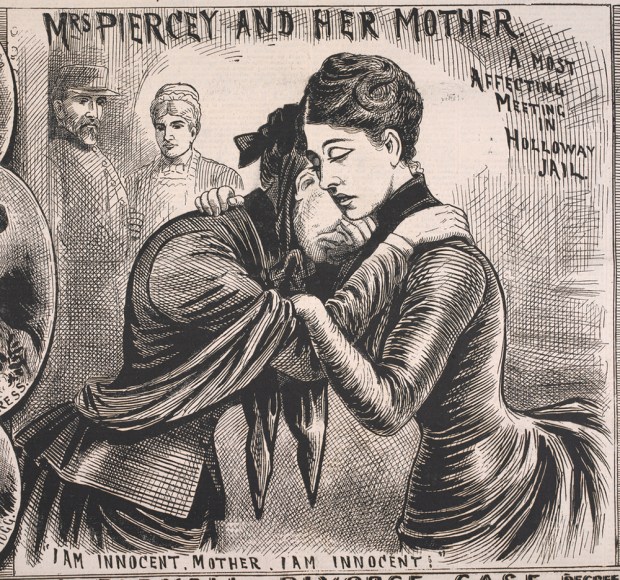‘The purpose of corporations,’ writes William Magnuson, ‘is, and always has been, to promote the common good.’ That’s a very bold claim in an era when the left is convinced that shareholder-owned limited liability companies (which is what Magnuson means by corporations) largely exist to exploit the customer, the worker and the planet for the enrichment of owners and executives; while plenty of entrenched boardroom opinion believes with Milton Friedman that the sole social responsibility of business is ‘to use its resources and engage in activities designed to increase its profits, so long as it… engages in open and free competition without deception or fraud’.
The ‘common good’ may come into play in fashionable theories about the ‘social purpose’ of business ranking equal with, or ahead of, the profit motive – but that’s a development dating only from the middle of the past decade. Magnuson has a different take on the relationship between business and the society which nurtures it. Through the sweep of history since ancient Rome, he argues, corporations have always been ‘closely connected to the state’ and useful in carrying out tasks and projects for which the state itself is ill-equipped. Yes, their promoters are driven by the profit motive – that’s what gives them their energy. And, yes, they frequently fall into ‘vice and greed’ and many other sins and have to be regulated back into compliance with the agreed common good. But, essentially, they are brought into existence ‘to promote society, not oppose it’.
Instead of a long theoretical argument on this theme, however, For Profit offers a set of historical examples, starting with the Roman societas publicanorum. These corporations, remarkably like modern companies in structure, had their origins in ‘tax-farming’ (the practice of individuals buying the right to collect taxes in parts of the empire) but grew into organisations capable of taking on contracts to procure togas and horses or build aqueducts or otherwise fulfil obligations that the republic itself could not keep up with.
Likewise, in Renaissance Florence, the Medici bank funded the ambitions not only of the noblemen of the day but of a rising class of merchants doing business across Europe – though it all went pear-shaped when ‘bungled succession planning’ handed power to the likes of Lorenzo the Magnificent, who took on too many speculative ventures, and Piero the Unfortunate, who needs no explanation.
Next comes the East India Company, opening and exploiting new markets for Elizabethan England – and, incidentally, given a considerably more favourable report here than in William Dalrymple’s The Anarchy, with its chronicle of corporate violence and pillage. Then America’s great railroad companies, notably the Union Pacific, knitting the country together after the civil war and achieving stupendous feats of engineering – before descending into the corruption of monopolism. On we go to meet Henry Ford, the father of mass production, who made car-ownership available to every American; and the tycoons of Exxon, the oil multinational that extracted fuel from the world’s most inhospitable places to keep America on the road.
Finally we visit the 1980s world of the corporate raiders Kohlberg, Kravis and Roberts and the triumph of their ruthless, debt-laden, cost-slashing, profit-for-its-own-sake financial capitalism. Arguably that was also a force for Darwinian efficiency in US industry, but Magnuson mounts no plea in mitigation for the corporation he chooses to represent the 21st century – namely Facebook, the social network that was started by Mark Zuckerberg, whose previous creation had the low purpose of enabling Harvard students to rate each other’s attractiveness and has grown into an amoral monster with 3.3 billion users, without positive connection to, or control by, any state.
By this choice of examples Magnuson leads the reader lightly towards his own theory of good business. An American law professor and journalist, he wears his scholarship lightly and clearly enjoys storytelling, rising to his best in a chapter titled ‘The Monopoly’, on the building of the 1,912-mile transcontinental railroad from the Missouri to the Pacific – and the arrival in the desert state of Utah of two competing companies, Union Pacific and Central Pacific, each laying several miles of track per day but not knowing where they were supposed to go because no meeting point had been officially decided.
‘For weeks, the two railroads had graders working within feet of each other, often in parallel, sometimes crossing. At times, the workers heckled each other.’ But at last, on 10 May 1869 at Promontory Summit, to the north of the Great Salt Lake, the last spikes were ceremonially driven in by the Californian Leland Stanford for the Central Pacific and Thomas ‘Doc’ Durant, ‘a Machiavellian genius of railroad finance’, for the Union Pacific. It was, says Magnuson, a demonstration ‘of the enormous creative power of the corporation in all its majesty’.
His eight corporate sketches, all lively, take us at last to ‘eight guiding principles for fixing corporations’, from Don’t Overthrow the Republic (meaning don’t undermine democracy by distorting truth or taking risks that destabilise entire economies) to Don’t Move Too Fast Or Break Too Many Things (meaning don’t be like Facebook at its most reckless). This ‘laundry list’, as Magnuson modestly calls it, is as clear a set of commandments for good business as you’ll find anywhere in today’s crowded quasi-academic bookshelf on the grand theme of corporate purpose. Having ploughed that furrow myself these past few years, I can pay Magnuson no higher compliment than to say that For Profit is a book I would be proud to have written.
Got something to add? Join the discussion and comment below.
You might disagree with half of it, but you’ll enjoy reading all of it. Try your first month for free, then just $2 a week for the remainder of your first year.














